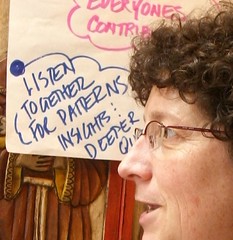Paul Klee's Twittering Machine
FUSION 2007 Desire2Learn Conference
Updating my basic article on online facilitation
New Terms in the Online Interaction Glossary
Online Interaction Glossary em Portuguese!
The same story the world over
It is about BOTH technology and people
Video of Video - more self referential stuff
RSS Made Easy - Thanks to my friends
Well it looks like I'm on the new Blogger
Pearls Before Breakfast - washingtonpost.com
Toby Blogs Me on Online Community Building
Blogging Codes of Conduct and Context
The Culture of Love and Complex Problem Solving
The chocoholic can't resist
What do we mean by a code of conduct?
The Power of Conversation












